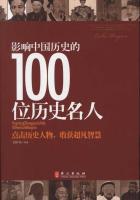Nekhludoff drove that day straight from Maslennikoff's to the prison, and went to the inspector's lodging, which he now knew.
He was again struck by the sounds of the same piano of inferior quality; but this time it was not a rhapsody that was being played, but exercises by Clementi, again with the same vigour, distinctness, and quickness. The servant with the bandaged eye said the inspector was in, and showed Nekhludoff to a small drawing-room, in which there stood a sofa and, in front of it, a table, with a large lamp, which stood on a piece of crochet work, and the paper shade of which was burnt on one side. The chief inspector entered, with his usual sad and weary look.
"Take a seat, please. What is it you want?" he said, buttoning up the middle button of his uniform.
"I have just been to the vice-governor's, and got this order from him. I should like to see the prisoner Maslova."
"Markova?" asked the inspector, unable to bear distinctly because of the music.
"Maslova!"
"Well, yes." The inspector got up and went to the door whence proceeded Clementi's roulades.
"Mary, can't you stop just a minute?" he said, in a voice that showed that this music was the bane of his life. "One can't hear a word."
The piano was silent, but one could hear the sound of reluctant steps, and some one looked in at the door.
The inspector seemed to feel eased by the interval of silence, lit a thick cigarette of weak tobacco, and offered one to Nekhludoff.
Nekhludoff refused.
"What I want is to see Maslova."
"Oh, yes, that can be managed. Now, then, what do you want?" he said, addressing a little girl of five or six, who came into the room and walked up to her father with her head turned towards Nekhludoff, and her eyes fixed on him.
"There, now, you'll fall down," said the inspector, smiling, as the little girl ran up to him, and, not looking where she was going, caught her foot in a little rug.
"Well, then, if I may, I shall go."
"It's not very convenient to see Maslova to-day," said the inspector.
"How's that?"
"Well, you know, it's all your own fault," said the inspector, with a slight smile. "Prince, give her no money into her hands.
If you like, give it me. I will keep it for her. You see, you gave her some money yesterday; she got some spirits (it's an evil we cannot manage to root out), and to-day she is quite tipsy, even violent."
"Can this be true?"
"Oh, yes, it is. I have even been obliged to have recourse to severe measures, and to put her into a separate cell. She is a quiet woman in an ordinary way. But please do not give her any money. These people are so--" What had happened the day before came vividly back to Nekhludoff's mind, and again he was seized with fear.
"And Doukhova, a political prisoner; might I see her?"
"Yes, if you like," said the inspector. He embraced the little girl, who was still looking at Nekhludoff, got up, and, tenderly motioning her aside, went into the ante-room. Hardly had he got into the overcoat which the maid helped him to put on, and before he had reached the door, the distinct sounds of Clementi's roulades again began.
"She entered the Conservatoire, but there is such disorder there.
She has a great gift," said the inspector, as they went down the stairs. "She means to play at concerts."
The inspector and Nekhludoff arrived at the prison. The gates were instantly opened as they appeared. The jailers, with their fingers lifted to their caps, followed the inspector with their eyes. Four men, with their heads half shaved, who were carrying tubs filled with something, cringed when they saw the inspector.
One of them frowned angrily, his black eyes glaring.
"Of course a talent like that must be developed; it would not do to bury it, but in a small lodging, you know, it is rather hard."
The inspector went on with the conversation, taking no notice of the prisoners.
"Who is it you want to see?"
"Doukhova."
"Oh, she's in the tower. You'll have to wait a little," he said.
"Might I not meanwhile see the prisoners Menshoff, mother and son, who are accused of incendiari**?"
"Oh, yes. Cell No. 21. Yes, they can be sent for."
"But might I not see Menshoff in his cell?"
"Oh, you'll find the waiting-room more pleasant."
"No. I should prefer the cell. It is more interesting."
Well, you have found something to be interested in!"
Here the assistant, a smartly-dressed officer, entered the side door.
"Here, see the Prince into Menshoff's cell, No. 21," said the inspector to his assistant, "and then take him to the office. And I'll go and call--What's her name?" Vera Doukhova."
The inspector's assistant was young, with dyed moustaches, and diffusing the smell of eau-de-cologne. "This way, please," he said to Nekhludoff, with a pleasant smile. "Our establishment interests you?"
"Yes, it does interest me; and, besides, I look upon it as a duty to help a man who I heard was confined here, though innocent."
The assistant shrugged his shoulders.
"Yes, that may happen," he said quietly, politely stepping aside to let the visitor enter, the stinking corridor first. "But it also happens that they lie. Here we are."
The doors of the cells were open, and some of the prisoners were in the corridor. The assistant nodded slightly to the jailers, and cast a side glance at the prisoners, who, keeping close to the wall, crept back to their cells, or stood like soldiers, with their arms at their sides, following the official with their eyes. After passing through one corridor, the assistant showed Nekhludoff into another to the left, separated from the first by an iron door. This corridor was darker, and smelt even worse than the first. The corridor had doors on both sides, with little holes in them about an inch in diameter. There was only an old jailer, with an unpleasant face, in this corridor.
"Where is Menshoff?" asked the inspector's assistant.
"The eighth cell to the left."
"And these? Are they occupied?" asked Nekhludoff.
Yes, all but one."












